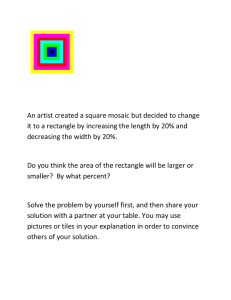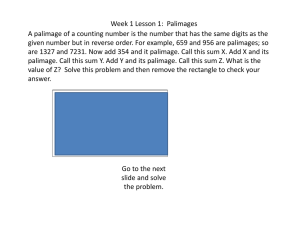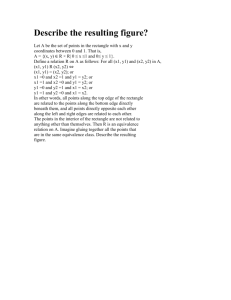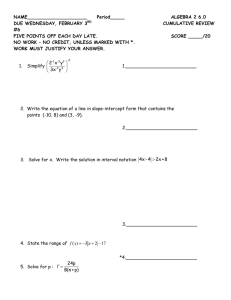q q q 2 x y Q 3 a ϑ
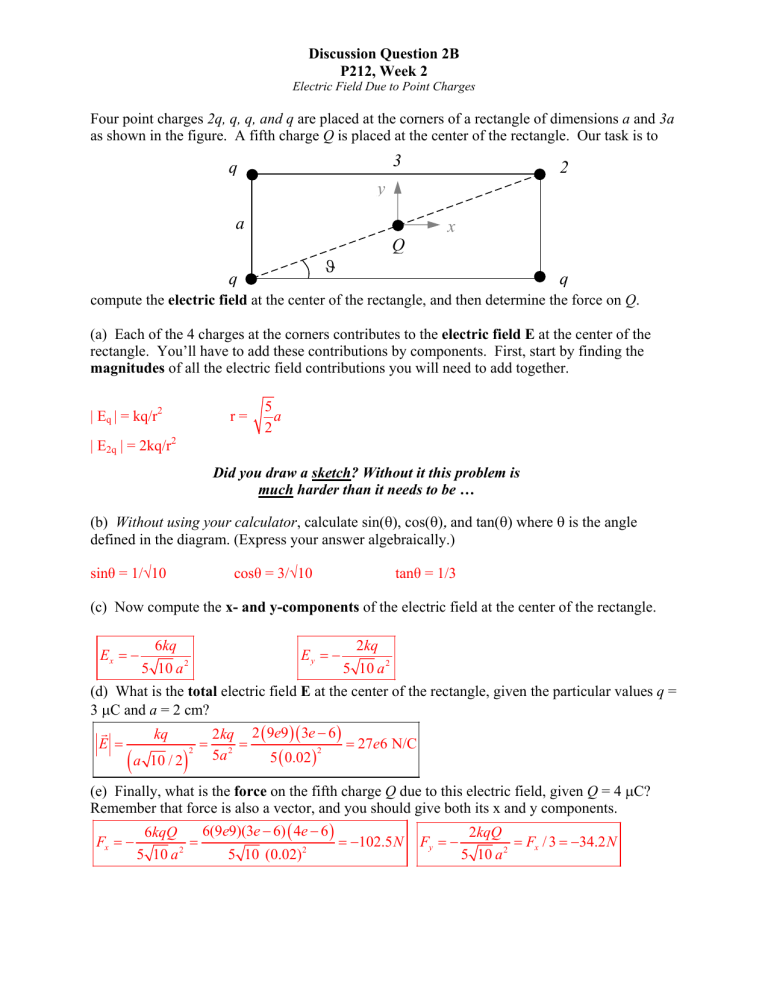
Discussion Question 2B
P212, Week 2
Electric Field Due to Point Charges
Four point charges
2q, q, q, and q
are placed at the corners of a rectangle of dimensions a
and
3a as shown in the figure. A fifth charge
Q
is placed at the center of the rectangle. Our task is to q
3
2 y a x
Q
ϑ
q q compute the electric field at the center of the rectangle, and then determine the force on Q .
(a) Each of the 4 charges at the corners contributes to the electric field E
at the center of the rectangle. You’ll have to add these contributions by components. First, start by finding the magnitudes
of all the electric field contributions you will need to add together.
| E q
| = kq/r 2 r =
5
2 a
| E
2q
| = 2kq/r 2
Did you draw a sketch? Without it this problem is much harder than it needs to be …
(b) Without using your calculator , calculate sin( θ) , cos( θ) , and tan( defined in the diagram. (Express your answer algebraically.) sin θ = 1/ √ 10 cos θ = 3/ √ 10 tan θ = 1/3
θ) where θ is the angle
(c) Now compute the x- and y-components of the electric field at the center of the rectangle.
E x
= −
6 kq
5 10 a
2
E y
= −
2 kq
5 10 a
2
(d) What is the total
electric field
E at the center of the rectangle, given the particular values q
=
3 μ C and a
= 2 cm?
G
E
= a kq
(
10 / 2
2 )
=
2 kq
5 a
2
=
( )(
( e
) 2
− 6
)
=
(e) Finally, what is the force
on the fifth charge
Q
due to this electric field, given
Q
= 4 μ C?
Remember that force is also a vector, and you should give both its x and y components.
F x
= −
6 kqQ
5 10 a
2
=
6(9 9)(3 e
− ( e
− 6
)
5 10 (0.02) 2
= − 102.5
N F y
= −
2 kqQ
5 10 a
2
=
F x
/ 3 = − 34.2
N
